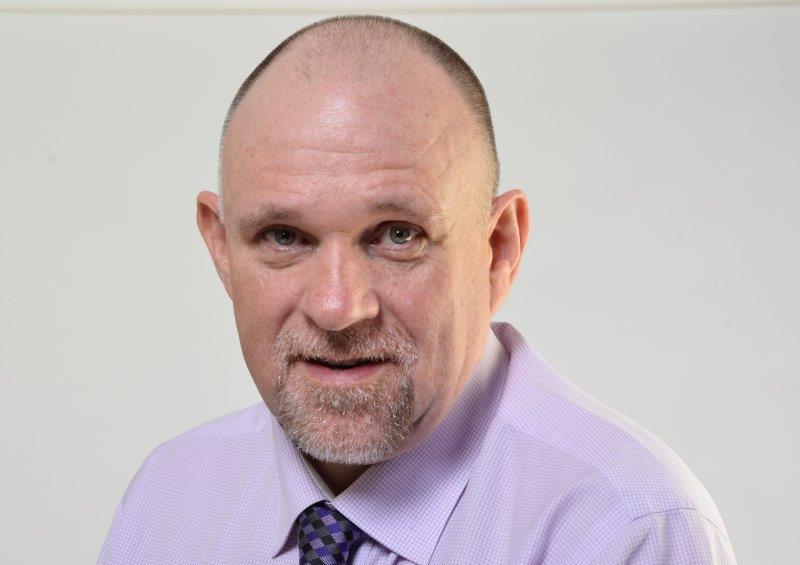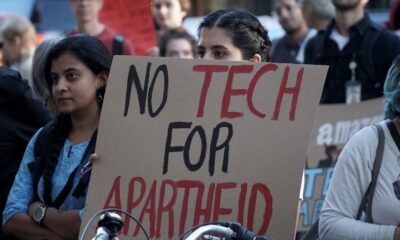Top Ten Highest Earning CEOs in Nigeria
The affairs of an organisation lie in the hand of the Chief Executive Officer, who oversees the affairs of the company, takes praise and blames for the company’s affairs.
This article contains the list of highest-earning CEOs from different companies listed on the Nigerian Stock Exchange. The main idea here is to throw more light on how much they earned and their work experiences.
FERDINAND MOOLMAN – CEO, MTN Nigeria, N586 Million
The first on the list is the CEO of the biggest non-oil foreign investment – MTN Nigeria Communication Plc, Ferdinand Moolman with a take-home of N586 million in 2019, about 2.5 percent higher than the N571million he earned in 2018.
Moolman became CEO of MTN Nigeria in December 1, 2015 as part of the main reshuffling of the telco’s operating structure. Before Moolman became the CEO, he was the Chief Financial Officer (CFO) of MTN Iran before he was transferred to Nigeria.
AUSTIN AVURU – CEO, SEPLAT N440 MILLION
The second CEO with the highest-earning on this list is the CEO of Seplat Petroleum Development Company Plc, Augustine Avuru, with N440 millon take home in 2019. This represents a N44 million shortfall to the amount he earned in 2018.
Austin became the Chief Executive Officer of Seplat in May 2010. Prior to becoming the CEO, he was the Managing Director at Platform Petroleum Ltd, a company he founded in 2002.
Before Avuru found Platform Petroleum, he had also worked with Allied Energy Resources in Nigeria as an exploration manager and technical manager, a pioneer deepwater operator, where he spent ten years.
SEGUN AGBAJE – THE CEO OF GTBANK, N400 MILLION
The third highest-earning CEO in Nigeria last year is the Chief Executive Officer of Guaranty Trust Bank, Segun Agbaje who earned N400 million in 2019, an increase of N16 million from N384 million he earned in 2018.
Segun became the Managing Director and Chief Executive Officer in 2011 after the demise of the former CEO, Tayo Aderinokun. Before becoming the CEO, he was the Deputy Managing Director in August 2002 and Executive Director in January 2000.
Segun Agbaje joined GTBank in 1991 as a pioneer staff after he left Ernst & Young, San Francisco, USA where he started his career.
YAW NSARKOH – FORMER CEO OF UNILEVER NIGERIA PLC (2019), N303 MILLION
The fourth on the list is the former CEO of Unilever Nigeria Plc, Yaw Nsarkoh, who earned N303 million in 2019. His earnings dropped by 8 percent from the N330 million he earned in 2018.
In December 2019, Nsarkoh resigned as the CEO of Unilever Nigeria Plc to work with Unilever Group in Europe.
Yaw has a long career with the Unilever Group, taking top positions like the Production Manager for Unilever Ghana, African Regional Brand Manager, and others.
He has also headed several regional headquarters of the global manufacturing company, basically in Africa. Yaw served as a Strategic Assistant to Unilever’s President for Asia, Africa, Central, and Eastern Europe.
MICHAEL PUCHERCOS – FORMER CEO OF LAFARGE AFRICA PLC, N272 MILLION
The fifth CEO with the highest earning in Nigeria in 2019 is the former CEO of Lafarge Africa plc, Michael Puchercos, who earned N272 million. This represents an increase of 18.7 percent when compared to N229 million he took home in 2018.
Puchercos, however, resigned from Lafarge in January 2020 to join competitor, Dangote Cement Plc. He was succeeded by the former country CEO of Lafarge Holcim Iraq, Mr. Khaled Abdelaziz El Dokani.
He worked in various capacities in Lafarge for two decades. He was the President and Chief Executive Officer of Lafarge Halla Cement; Director of Strategy and Systems at Lafarge Gypsum; Chief Executive Officer of Bamburi Cement and Hima Cement; and Chairman of Mbeya Cement in Tanzania, before his appointment as the CEO of Lafarge Africa plc.
JORDI BORRUT BEL – CEO OF NIGERIAN BREWERIES PLC, N271 MILLION
Sixth on the list is the Chief Executive Officer and Managing Director of Nigerian Breweries plc, Jordi Borrut Bel, who took home N271 million in earnings in 2019. Borrut Bel’s earnings surged by 42 percent when compared to N190 million he earned in 2018.
Prior to coming to Nigeria, Jordi was the Managing Director of Heineken Burundi. He has served in Heineken’s different subsidiaries in different countries. He was Managing Director at Brarudii SA, Manager-Project Distribution at Heineken Slovensko AS, Brand Manager at Heineken France SAS and Director-Sales & Distribution at Heineken España SA.
Jordi has over 20 years experience in business and sales, and he has spent his entire career at Heineken. He joined the Heineken N.V. group in 1997 as a Sales Representative at Heineken Spain.
MAURICIO ALARCON – CEO OF NESTLE NIGERIA PLC, N218 MILLION
Next on the list is the seventh highest-earning CEO in Nigeria, the Chief Executive Officer of Nestle Nigeria Plc, Mauricio Alarcon, who earned N218 million in 2019, an increase of N8 million from the N210 million he earned in 2018.
Alarcon was appointed as CEO in 2016, after a progressive 17 years career with the Nestle brand. Prior to this, He was the Managing Director of Nestle Atlantic Cluster between June 2016 and September 2016, overseeing Senegal, the Gambia, Guinea, and Cote d’Ivoire.
Mauricio also worked as Country Manager at Nestle Cote d’Ivoire and Marketing Advisor at Nestle Headquarters in Switzerland.
LARS RICHTER – THE CEO OF JULIUS BERGER NIGERIA PLC, N217 MILLION
The Chief Executive Officer of Julius Berger Nigeria Plc, Lars Richter, took home N217 million in 2019. A decline of N102 million from the N319 he earned in 2018. Richter is the eighth highest-earning CEO on the list.
Richter is presently the managing director and chief executive officer of Julius Berger; he became the CEO in 2018.
Before this appointment, Richter had occupied different positions including Division Manager, Project Manager, and Project Engineer. He has over 16 years experience in the construction industry with 10 years of those spent on Nigerian soil.
EMEKA EMUWA – THE CEO OF UNION BANK OF NIGERIA, N172 MILLION
As the ninth highest-earning CEO in Nigeria, the Chief Executive Officer of union bank of Nigeria, Emeka Emuwa earned N172 million as annual income in 2019, the same he earned in 2018.
Emuwa was appointed as the CEO of Union Bank of Nigeria in November 2019. Prior to becoming the CEO of Union Bank of Nigeria, he served as CEO in companies across several countries like Tanzania, Ghana and Niger.
Emeka also occupied the position of Country Head in Cameroon where he also oversaw all the bank’s activities in the Central African region, including Congo and Gabon. He started out as a Management Assistant at Citibank Nigeria Limited.
IMRANE BARRY – THE CEO OF TOTAL NIGERIA PLC, N163 MILLION
The last but not the least is the Chief Executive Officer of Total Nigeria Plc, Imrane Barry, with N163 million earnings in 2019, a 41 percent increase from the N115 million he earned in 2018.
Barry was appointed as CEO in 2018. Before he was appointed, Barry had served as Managing Director of Total Cameroon, South Africa in 2015 and Total Uganda in 2013. He was also appointed Deputy Executive Vice-President of Total Africa & Middle East in 2012.
He also worked with other Total affiliates in Kenya and Ivory Coast, at SEP-Congo as the Technical and Transport Director, and in Paris as the Strategy and Development Senior Officer.
Before he joined Total, Barry had worked in several capacities in Engineering and Construction Companies in Guinea Conakry, Cote d’Ivoire and Gabon.




 Forex2 weeks ago
Forex2 weeks ago




 Naira1 week ago
Naira1 week ago
 Naira4 weeks ago
Naira4 weeks ago
 Company News4 weeks ago
Company News4 weeks ago






 Naira2 weeks ago
Naira2 weeks ago
 Billionaire Watch1 week ago
Billionaire Watch1 week ago






 Naira1 week ago
Naira1 week ago




 Naira3 weeks ago
Naira3 weeks ago












